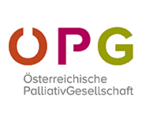Unreflective media reports about pregabalin-related deaths lead to uncertainty among patients and doctors
Vienna (OTS) – In a statement dated March 13, 2024 by the SUNDAY TIMES Published article blames the drug pregabalin for thousands of deaths in Great Britain. International media picked up the topic and sparked a “bashing against a drug that is indispensable for us in palliative and pain medicine,” is how OA Dr. Dietmar Weixler, MSc, President of the Austrian Palliative Society (OPG).
Avoiding pregabalin would be more dangerous than controlled, medically indicated use
“In the one mentioned SUNDAY TIMES In the article, a woman reported on the tragic death of her son in the English addiction environment,” explains Weixler: “The scientific article by Nicola J Kalk from 2022 (!) quoted in the newspaper is from the field of forensic medicine and can be extremely unsettling without a detailed interpretation. The methodology we criticized in 2015, which uses blood level measurements to determine the cause of death in a non-representative group of corpses, is in stark conflict with the clinical practice of careful therapy planning and control in palliative and pain medicine.”
Weixler argues that abandoning pregabalin because of a single case report from the drug scene would not be in the interests of patient safety: “On the contrary, the drug is an essential component of the instruments of effective palliative and pain medicine as part of a medically indicated and controlled use.”
Support from the pain society
The OPG’s position is supported by the Austrian Pain Society (ÖSG). For ÖSG General Secretary Prim. Univ.-Prof. Dr. For Rudolf Likar, MSc, using the medication is a daily routine as part of his palliative and pain management work. Likar has carefully read the studies that form the basis for the media pregabalin bashing and also considers their results to be “extremely questionable. Neither demographic data or comorbidities were collected, nor was there a distinction between pain and substitution patients.” The toxic properties of pregabalin described in the studies would not be relevant in the dosages given in pain medicine, explains Likar. Here you always follow the motto “Start low, go slow!”, i.e. start with a low dosage and titrate up slowly.
Avoiding this medication would also be fatal for Likar: “We need pregabalin in pain medicine. In addition to the pain-relieving effect, it also relieves anxiety and improves sleep quality. Two important properties to improve the quality of life of chronic pain patients.”
Information and close therapy monitoring
Pregabalin belongs to the anticonvulsant group of medicines and was originally approved for the treatment of epilepsy. The indication was later expanded to include generalized anxiety disorder and nerve pain. In the treatment of this so-called neuropathic pain, pregabalin is now considered one of the most important and most frequently prescribed medications in Austria.
Pregabalin is undoubtedly an active ingredient with significant potential for side effects, Weixler concluded: “Appropriate information and close monitoring of patients is therefore urgently required for prescribing and accompanying doctors. However, in our view, doing without this would be completely irresponsible.”
Questions & Contact:
OA Dr. Dietmar Weixler, MSc,
President of the Austrian Palliative Society (OPG)
Email: dietmar.weixler@horn.lknoe.at
Phone: 01 40400 27520
Prim. Univ.-Prof. Dr. Rudolf Likar, MSc,
Secretary General of the Austrian Pain Society (ÖSG)
E-Mail: rudolf.likar@kabeg.at
Phone: 0463 538-34304
